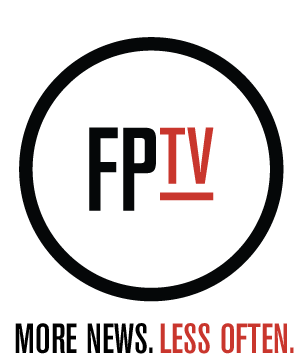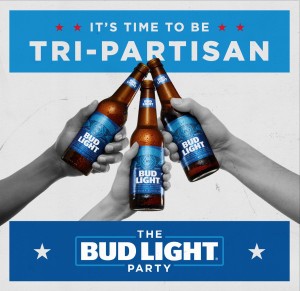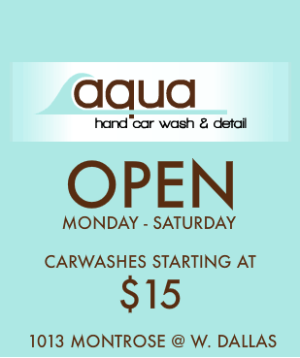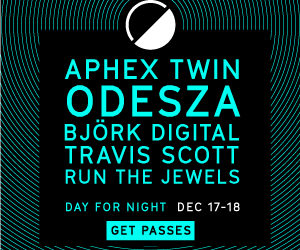Houstonian Tales: Wonky Power Records
Mario Rodriguez and Elizabeth Salazar of Wonky Power Records. Photo: Aisha Khan
If you look around Houston’s music scene, there’s a good chance that you’ll find artists who are having trouble figuring out how the music industry operates. For a long time now, industry is what Houston has needed more than new festivals or new venues, as well as those who have been in the artist’s position to help guide those who need help advancing outside of the city. Three years ago outside of Alley Kat, Mario Rodriguez from Wonky Power Records told me he planned to get everyone together and make them come to Houston rather than our city reaching out to everyone else and that he wanted to build a community where artists worked together to build a scene where everyone could thrive. Then, with each passing month, he proved his point with Bang Bangz member and Wonky Records co-founder, Elizabeth Salazar. A live music venue, a record label, live video streams, and practice spaces all became part of the Wonky Power-verse. Last week the record label — who already represents artists like Gio Chamba and George West — announced that they were adding a music agency to the universe that Wonky Power has created. Free Press Houston sat down with Rodriguez and Salazar to discuss how they started and where they plan on taking us all in the future.
Free Press Houston: You’re both from Houston, how long have each of you been playing music and are there bands that you were in that never saw the light of day?
Elizabeth Salazar: I’d say, well, I’ve been singing since I was ten years old, so I’ve been at it for fifteen years. When I first started performing, I toured Texas with Fausto, and performing back then helped give me the confidence to move forward with it. But I don’t think I’ve had a short lived project at all really.
Mario Rodriguez: I would say fifteen years as well, but mine was with a high school Battle of the Bands when I was in the ninth or tenth grade. [laughs] We won second place. All of my bands have been around for a good while. I did Tax The Wolf for three years, Wolf At The Door for about a year, and The Valentines for about a year. And now Bang Bangz has been around a good while, too.
FPH: Mario, what lead to going from the intensity of Tax The Wolf to the more chillwave sound of Bang Bangz?
Rodriguez: Well, at one time we had two rehearsal spaces at at Texas Music Studio. But we had the Tax The Wolf room and another with Robert Ellis as a room neighbor. Ellis has such a work ethic, he’d rehearse early in the morning until late at night, and it was really impressive. When we’d finish practice with Tax The Wolf, Elizabeth and I would go to the other space to work on stuff. Because we thought the space Elizabeth and I used interfered with Tax The Wolf, we moved across the hall. We knew Vik [Montemayor] and he had wanted to play drums in a band, so we took the songs that Elizabeth and I had worked on and recruited Vik two weeks before our first show. The way the band sounded was how it just happened.
Salazar: Mario dropped a new song on Vik and I on the day of our first show, and we learned it in thirty minutes. He’s always doing stuff like that, constantly editing songs and changing them to get different reactions or to create a new feeling when we play out live. With Bang Bangz we just wanted to do something more electronic and different, and the sound we have is what came out. It definitely made us appreciate electronic artists more after learning Ableton and production in general and performing that way ourselves.
FPH: Bang Bangz had over 100,000 plays on Spotify last year, yet the band earned less than $1,000 from it. Would you advise against streaming after that?
Salazar: I wouldn’t discourage artists from using streaming services. It’s a good way for people to get their music heard, but like a lot of things in the music industry, it’s a give and take.
Rodriguez: It’s a good medium, but I wouldn’t make it a priority. I think people should look at new ways to market their music today aside from just putting it out there to stream. Find a giant company like Gatorade and get them to include downloads with purchase or just team up and try something different by using their size and power to get attention.
FPH: How did you guys come up with the idea of starting your own label?
Salazar: After the Bang Bangz tour of Mexico, we came back and were so inspired by the music environment down there. These 25-year-old women who ran their own music labels and empires, it was really inspiring and proved that anyone could do anything they put their minds to.
Rodriguez: We didn’t even want to play music until we had created a similar foundation for ourselves. It was everything professional from how we were picked up at the airport, to the interviews and appearances they had us do, to the food and just how we were treated; they were these small labels doing everything like people who had been in the industry their whole lives. They made us feel like stars. We wanted every artist we dealt with to feel the same way, and we wanted to help end the days of artists we knew not getting paid. We can do better for touring and local acts by doing things ourselves, so we just started our own thing to facilitate that.
FPH: Where does the name come from?
Rodriguez: It was a nickname I had in high school, and I had forgotten about it. When we got back from Mexico, we were discussing names and it just came up, and Elizabeth was like, “I like that, let’s go with that.”
FPH: You two have the studio, the practice space, the label and the live stream videos alongside now curating shows at Axelrad, 8th Wonder Brewery, and Aloft Hotels — when do you sleep?
Salazar: It’s a full time job. We don’t do drugs or anything like that, we just get up early and start working on things for fifteen hours a day or so. We get motivation by those around us, plus our team has grown since we started, and that’s helped a lot.
FPH: The label is home to Bang Bangz, Gio Chamba, Rex Hudson, and George West to name a few. How do you decide who you will and won’t work with?
Rodriguez: Elizabeth and I talk about the music and then we go see them play live. We try to experience their sound and their show, but meeting with them and seeing what their personas are like makes a difference, too. The acts that we work with already are always appreciative of us and we’re appreciative of them and all that they bring to what we do. It’s a symbiotic relationship that we try to start in a good place that we can grow together with.
FPH: Now that the label has gotten into booking shows, do you see what people see as how a record label operates changing?
Rodriguez: We discussed what we thought a record label was and what one could be. Distribution, artists having more power, what is and what isn’t important, we found that we want to make the representation of an artist our main focus. We’re booking tours, getting things sealed up in Mexico and South America so our artists can tour down there, while we’re still putting on local shows as well as recording acts and offering the rehearsal space. We’re working to making our vision of our artists elevating to a different level, a reality.
FPH: Tell me about the Wicked Music Showcase and how it came to be?
Rodriguez: The Wicked Music Showcase came about from our meetings with the East End people about possibly redoing the art side of things for the East End of Houston. We participated in the East End Open House last year, and after speaking with Amy Dinn from their board, we had discussed some sort of festival similar to how the Houston Press Music Showcase used to be, but doing it on the East side of town. After several meetings, we solidified the name and how things would work out. It’s pretty cool with fifty bands and White Swan, Super Happy Fun Land, Bohemeo’s and the Wonky Power location all serving as spots for it to happen at. It’s a cool idea for the area, and we wanted to try it out and see how it goes, but ultimately we just want to have fun with it. The Pop Shop people are involved and they’ll have shuttles to get people around. It’s a good deal for the price, $20 for a wristband or $30 with the shuttle.
FPH: What’s the future for Wonky Power? Do you have any releases this year yet to drop?
Salazar: We’re starting to see ourselves as a hub for different venues around the US and Mexico, where people can contact us to find artists to play their venues.
Rodriguez: I want Wonky Power to be a staple here in Houston. Where the city — especially the Latino community — can be proud of us. To hopefully be a beacon of hope for entrepreneurs and artists in the Latin community and beyond. As far as releases, we have singles from Rex Hudson, Gio Chamba, and George West, as well as a new album from Handsomebeast in December. And then of course, the new Dollie Barnes album comes out next February.
I’ve said it before and I’ll say it again, these two might be the most driven people in the Houston music scene today. If you don’t know who they are, you’re definitely doing yourself a disservice if you haven’t stopped at one of their curated events or by a Wonky Power event to say hello, as both are not only inspirational, but educational as well. While I have no idea when these two actually take time to relax, you can catch them at the Wonky Power stage for the Wicked Music Showcase on October 22. The all ages event has doors at 1:30 pm, and tickets run between $20 and $40.










![FPH_2016_AdPackage_Lovebuzz_420x75-FeaturedBanner[Mobile]](../2016/08/wpimages_subdomain/FPH_2016_AdPackage_Lovebuzz_420x75-FeaturedBannerMobile.png)

